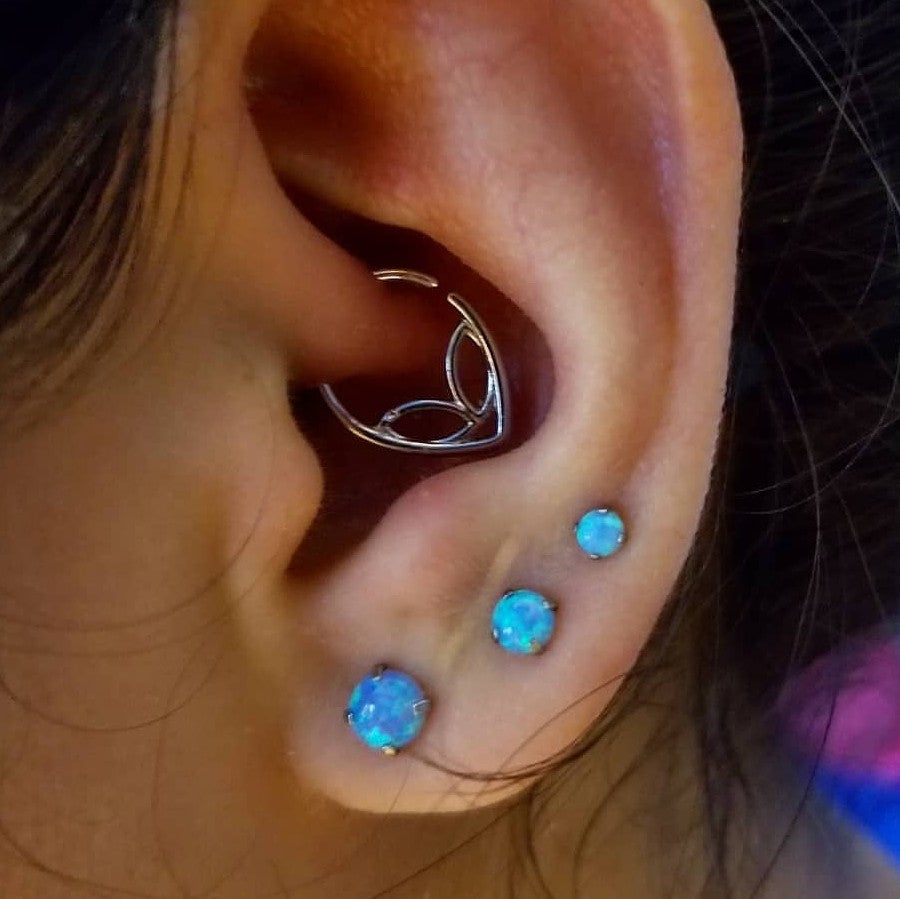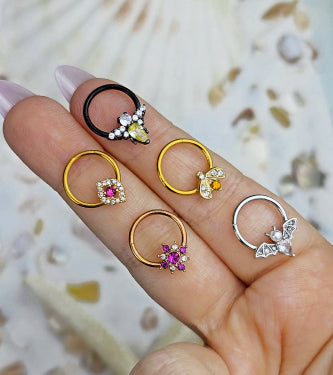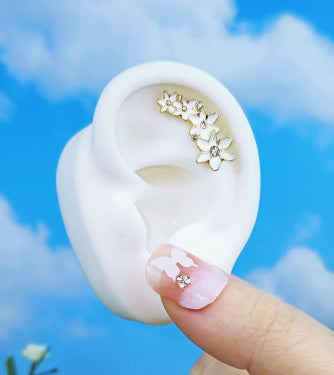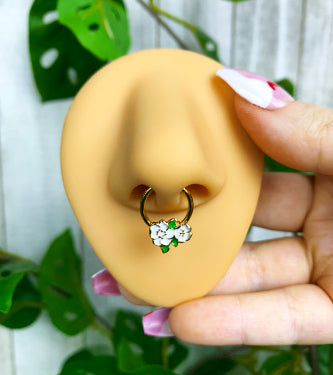
Why Is My Piercing Itchy?
If you've made your way to this blog, odds are it's probably because you've got a piercing that's itching. Whether you've had your piercing for years, months, or just days, a new symptom like itching can bring along a lot of different worries.
"Do I have an infection?"
"Is my piercing rejecting?"
"Should my piercing be itchy after a year?"
Piercing itchiness isn't always a bad thing! Here are a few simple reasons why your piercing might be itchy, both good and bad.
1.) Your Piercing Is Healing
That's right! An itchy piercing can actually be a good sign. Itchiness at a piercing site probably just means that your healing is progressing properly.
Remember that a piercing is technically a puncture wound. As the needle is pushed through your body, it causes trauma to the tissue of whatever body part you're getting pierced. Your body has to work to heal the trauma - once it does, you've got yourself a healed body modification.
As your body heals, it may be doing some unique things to try to fight off what it perceives as a "foreign invader," including getting you to scratch at your new piercing. Do not itch your piercing, no matter what! The cells inside of your mod are very fragile, and itching them might damage them, disrupting your healing processes, and causing more itching for yourself down the line.

2.) Bad Piercing Aftercare
Piercings aren't a one-and-done commitment! They take time to heal, especially in the case of cartilage piercings like the industrial, tragus, or even the nostril.
Part of this integral healing process is making sure you are practicing good piercing aftercare. A sterile saline spray once per day will ensure that the area around your piercing is clear from any dirt, debris, or bacteria. Don't scrub, rub, or tug at the area around your piercing - it's not worth the risk! Just let the saline spray do the work. Pro tip: don't clean too much, as this can have a drying effect on your piercing, causing more itching.
Avoid using any soaps, shampoos, or chemicals on your piercing for any reason. These products are often very harsh and can have a negative effect on your piercing. Stick with saline and warm water from a shower until your piercing has fully healed.
Other reasons you might be feeling itchiness include unnecessary stress being placed on your piercings. Think any headwear (like headphones, hats, hoods, headbands, or earmuffs) that might be putting pressure on your jewelry. This goes for sleeping too - we all toss and turn at night, but do your best to stay off of your mod when you lay down at night.

3.) Material Sensitivities
Everybody's body is different. No two piercings are the same. Some people's bodies reject jewelry with certain metal compositions - even 14k gold sometimes! If you find that your body isn't reacting well to a new piece of jewelry, you might just need to try a material that's a bit more biocompatible.
For metal, we recommend using titanium body jewelry (anodized titanium jewelry is also an option for a pop of color). Titanium is one of the most inert metals, making it a perfect addition to the human body.
If metal isn't your thing, you can also try Bioplast body jewelry. Bioplast was originally developed for use in medical situations - it's flexible, can be sterilized, and most of all... Super comfy!

4.) Piercing Bumps or Keloids
Even the best of us have issues with piercing irritation. We often carelessly whip our clothing off or dry off our heads with towels. In these situations, your piercing is to getting a snag. It's especially painful when we least expect it.
If you've irritated your piercing, you can expect a bit of discomfort, which may or may not include itching. You might even develop a piercing bump, also known as a hypertrophic scar. These small, fleshy, fluid-filled bumps are stubborn and unsightly, but are mostly harmless. The best way to get rid of them is to LITHA - leave it the heck alone. Otherwise, keep it clean with your once-a-day saline spray regimen and give it time for the bump to go down in swelling.
Keloids, however, are another story. Keloids are comprised of hard, angry scar tissue. They can also certainly come with an itch. Keloids are NOT the same as piercing bumps - these raised sections of skin can only be removed with the help of a doctor. If you think you have a keloid, it's time to go see a medical professional!
5.) Infection/Rejection
A piercing that looks normal but is itchy is probably just experiencing some healing side effects. There is always the chance that your piercing is infected or rejecting, however, and it's important to know the signs.
Barring the symptoms of having just been pierced (swelling, a bit of pain, throbbing), if your piercing develops any of these symptoms, it's time to talk to your piercer AND a medical professional.
- Extra redness
- Chapped or flaking skin around the piercing site
- A smell coming from the piercing
- Yellow/Green discharge or pus coming from the site
- A change in the way your jewelry is sitting
- A change in the physical appearance of your piercing site
- Sharp pain

Don't Be Afraid To Ask Your Piercer For Help or Advice!
This information should just be a starting point for you. If you think you are experiencing anything more than regular healing itchiness, it's time to contact your professional piercer or a medical professional. The long term health of your piercing (and you) is worth a professional's advice - make an appointment ASAP!






